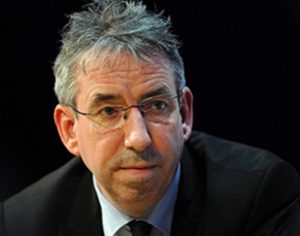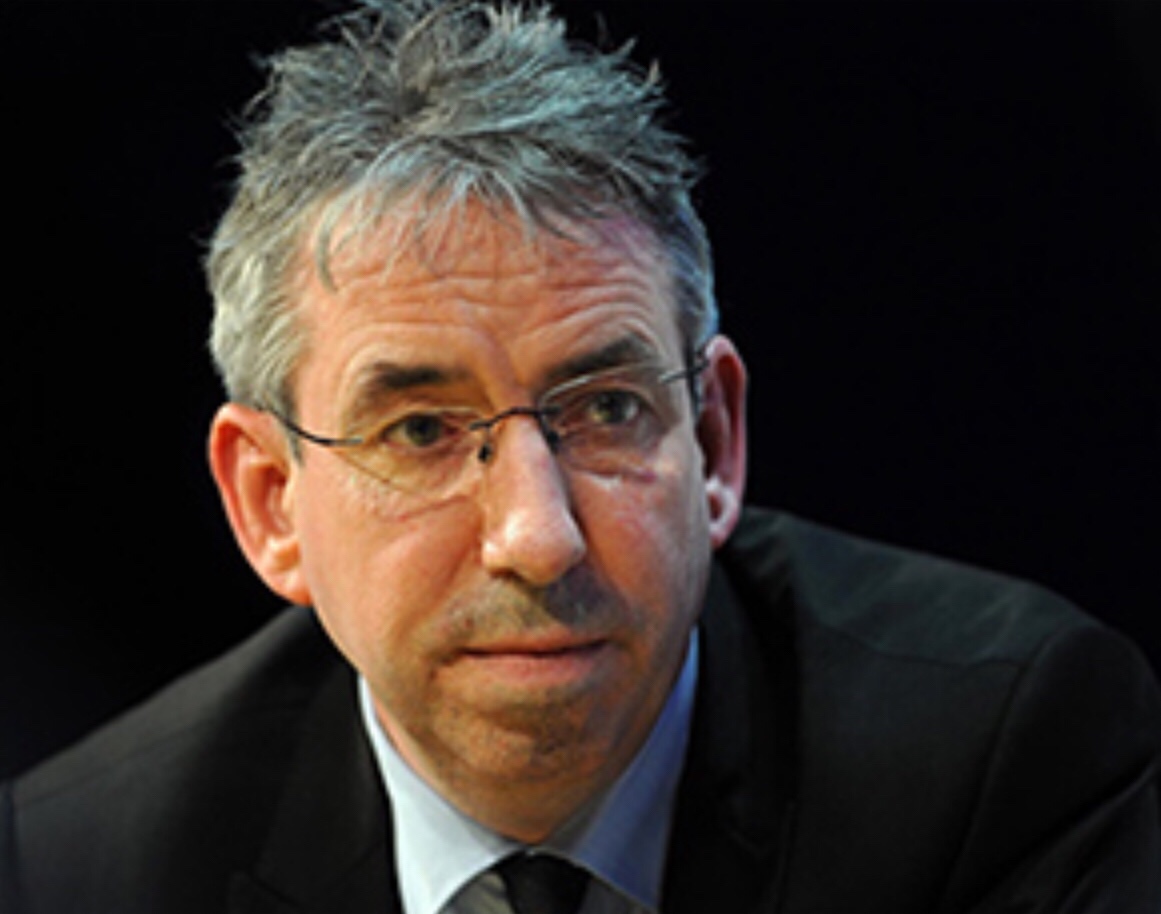The former boss of the Royal Sussex County Hospital came back to Brighton and Hove to check how healthy the outlook is for the area.
It was as much a wealth check as a health check, as Duncan Selbie spoke about the importance for our wellbeing of having a job and an income and the chance to make choices.
Mr Selbie, the chief executive of Public Health England, said: “My heart lies in Brighton and Hove and it always will. I feel a big affection for the place.”
From 2007 to 2013 Mr Selbie was chief executive of Brighton and Sussex University Hospitals NHS Trust, which runs the Royal Sussex as well as the Royal Alexandra Children’s Hospital and the Sussex Eye Hospital.
Having met health chiefs, council bosses and others steering Brighton and Hove through some challenging times yesterday (Monday 8 January), he said: “It’s got a leadership team that’s working really hard with what they’ve got on the things that really matter.
“I know what a fabulous place this is. It’s a powerhouse of new businesses.
“I was down on Saturday with my family – it’s got masses going for it.
“It’s very special and it’s the place to be. It has its problems as well with deprivation – and sometimes not-so-visible deprivation – but in a relative sense it’s a great place to be and to find work.
“It’s a highly educated city and of course it has a fabulous hospital.”
He confessed to checking progress at the Royal Sussex site in Eastern Road, having spent years trying to persuade the Department of Health and the Treasury to fund a modernisation costing almost half a billion pounds.
Mr Selbie said: “It’s got a future that’s second to none, with what is still also a new medical school.
“It will be where the investment comes for the next 10 to 20 years – hundreds of millions of pounds of public money spent there – and it’s not PFI (private finance initiative) money.
“Whatever the issues of the moment might be, what Brighton and Hove has got is a fabulous hospital with a sparkling future. I haven’t made that up – and the Treasury agrees!
“Obviously I keep in touch. I still feel immense ownership and I’m still part of the NHS leadership.
“I’m very proud of the hospital and what it does and I know the people of Brighton and Hove are. It’s some achievement to run an acute hospital, let alone when it’s still being built – or rebuilt!”

In his role at Public Health England, Mr Selbie visits local health chiefs – in particular, those responsible for public health – all over the country.
After his visit to Hove Town Hall yesterday – the headquarters of Brighton and Hove City Council and the Brighton and Hove Clinical Commissioning Group (CCG), he said: “The thing that was obvious was the way that the CCG are working with the council.”
He said that he was looking for examples of organisations like the council and CCG working together in smarter ways to improve the prevention of ill health and the things that led to ill health, especially in the early years, and to improve life chances.
Mr Selbie touched on the council’s business and economic strategy and its desire to spread prosperity, including through the Greater Brighton Economic Board.
He said: “There are many people in well-paid jobs in Brighton and Hove but there are those who aren’t – and there’s a gap.
“The focus this morning was on the economic strategy. At the heart of improving the health of the people of Brighton and Hove is the economic strategy, getting as many people into work as possible to improve health outcomes.”
He was reminded of his time running a mental health trust, he said, reciting four key factors underpinning many people’s mental health – with work playing a crucial part.
They were a reason to get up in the morning, something meaningful to do, money in your pocket and friends to share those things with and talk to.

The best indicator of improving health tended to be improving incomes, founded on getting people into work and improving their employability.
How healthy is Brighton and Hove? Who better to ask! But Mr Selbie turned the question back and said that people should be asking themselves whether they smoke tobacco, take drugs, drink alcohol and have good sexual health.
He said: “The four risks are the same whether its heart disease, cancer, diabetes or dying in a fire!
“Do you smoke? What do you eat? How much exercise do you take? How much do you drink?
“If you pay attention to those risks, you will double your chances of being in good health at 70.”
Mr Selbie praised local efforts to tackle childhood obesity – “a focus for us at Public Health England” – and the local public debate about sugar.
He said that the council and the CCG‘s “big conversation” and the way that it had engaged the public, parents, schools as well as restaurants and takeaways were acts with far-reaching consequences.
He added: “We can only support what people are doing locally and the council (in Brighton and Hove) is doing more than most.
“The people of Brighton and Hove have improved a great deal but there’s still a long way to go.”

He said that it was important to talk and think about how much and what we eat. He said: “Exercise won’t compensate for eating too much.”
What about drinking? “I’m completely at ease with people having a drink,” he said. “Many people enjoy alcohol.
“There’s no harm in that but our advice is to try not to drink on two consecutive nights.”
It might seem as though “everything you enjoy, I’ve got a downer about it”. Well, Mr Selbie has become used to being labelled “nanny in chief”. Forget Dr Kildare and think Dr Killjoy!
With some relish he reeled off the reactions of academics, newspapers and others to his advice and his pronouncements and those of his colleagues.
But the softly spoken Scot added without a hint of chiding: “This is about us sharing knowledge with people … All I’m trying to do is give people choice.”
The better off you are, he said, the wider your choices. And that tends to be related to the better educated you are too.
He seemed keen to reach those who might not be as well off or as educated or those who gleaned their health information from the tabloids or on social media sites like Facebook and Instagram.
Mr Selbie said: “I don’t think we should be telling people how much you can smoke or drink or eat.”
He didn’t want to hector people, rather to arm them with the knowledge to make their own informed choices.
“We know that frightening people and harrying them doesn’t work,” he said – but working with people was far more effective.
By way of example, he cited e-cigarettes. His organisation and its local equivalents are pushing the “stop smoking” message all this month, offering support as they tap into the trend for new year resolutions.
He said: “We know on smoking that eight out of ten people who smoke would rather they didn’t.
“Our support for e-cigarettes is one of the things I’m most proud of. It’s counterintuitive but three million people use them.”
Conventionally, he said, health chiefs might follow the precautionary principle while others – smokers, say – might argue that so long as you’re not hurting someone else, you should be able to do what you want.
But, he said, he was mindful of what appeared to be something like a twentyfold difference in risk.
At least e-cigarettes didn’t have the toxins and carcinogens found in traditional tobacco cigarettes, given that the tar content was so much more dangerous than the nicotine.
“When you’ve got three million people using e-cigarettes, what’s the point saying I can’t possibly talk to you!” he asked.
Whether it’s all over the tabloids or on a visit to old haunts in Brighton and Hove, Mr Selbie is keen to keep the conversation going.
For more information, visit www.phe.gov.uk.








